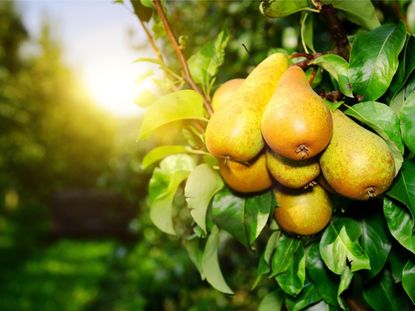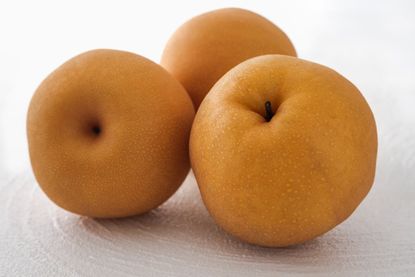Pear Trees
Crunching into a perfectly ripe pear is one of life’s pleasures. So if you crave the crunchiest, sweetest fruits that dribble down your chin, you’ve come to the right place. Our guides show you how to plant, train, thin and propagate your pear trees for the most luscious harvests.
-
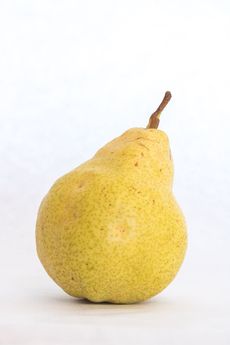
Bartlett Pear Information – How To Care For Bartlett Pear Tree
Growing Bartlett pears in your home orchard will give you a continual supply of this delicious fruit. For Bartlett pear information plus tips on how to care for a Bartlett pear tree, the following article will help. Click here to learn more.
By Teo Spengler
-
Pear Texas Rot: How To Treat Pears With Cotton Root Rot
The fungal disease called pear cotton root rot attacks more than 2,000 species of plants including pears. If you have pear trees in your orchard, you’ll want to read up on the symptoms of this disease. Click this article for additional information.
By Teo Spengler
-
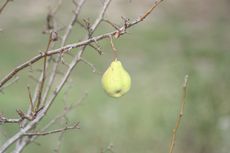
Pear Tree Not Leafing Out: Troubleshooting Pear Tree Leaf Problems
If your pear tree has no leaves or small, sparse leaves rather than covered in green foliage, something isn't right. Your first move should be to check its cultural care since irrigation, placement, and soil issues can cause pear tree leaf problems. Click here for tips.
By Teo Spengler
-
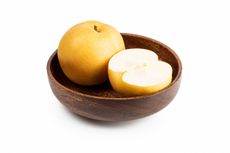
Hosui Asian Pear Info – Caring For Hosui Asian Pears
Asian pears are one of life's sweet natural treats. They have the crunch of an apple combined with the sweet, tang of a traditional pear. Hosui Asian pear trees are a heat tolerant variety. Click this article for more Hosui Asian pear information.
By Bonnie L. Grant
-
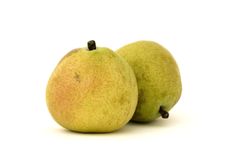
Growing D’Anjou Pears: How To Care For A D’Anjou Pear Tree
If you’re like me, you can hardly wait for the first winter pears to appear at the market and one of my favorites is the D’Anjou. Interested in growing your own D’Anjou pear trees? The following D’Anjou pear information discusses the care for and harvesting of D’Anjou pears.
By Amy Grant
-
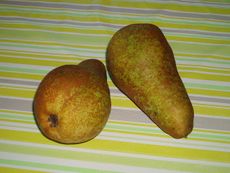
Concorde Pear Info – How To Grow Concorde Pear Trees
Firm and crisp, Concorde pears are juicy and delicious off the tree, but the flavor becomes even more distinctive with ripeness. Concorde pears store well and generally last about five months. Click here for more info and learn the basics of growing these pears.
By Mary H. Dyer
-
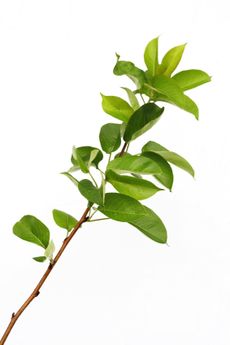
Taking Pear Cuttings – How To Propagate Pear Trees From Cuttings
If you're new to pear tree propagation, like me, then a little education about how to propagate pear trees from cuttings is in order. Find information and tips on propagating pear cuttings in this article. Click here to learn more.
By Amy Grant
-
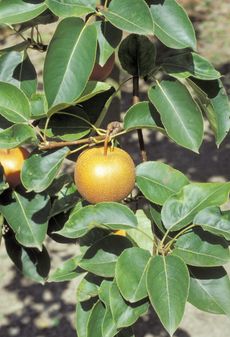
Asian Pear Trees: Learn How To Grow An Asian Pear Tree
With a delicious pear flavor but a firm apple texture, growing your own Asian pears is becoming a popular option for those with a home orchard. Get tips and information for growing Asian pears in this article.
By Amy Grant
-
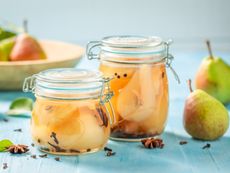
Storing And Preserving Pears Like A Pro
What can you do with a bumper crop of pears? Click here to get some good ideas.
By Amy Grant
-
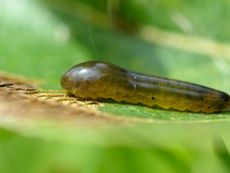
Pear Slug Pests – How To Kill Pear Slugs In Gardens
Growing your own fruit can be very rewarding. However, when fruit trees become infected with disease or pests, it can be very disappointing and discouraging. If you notice skeletonized foliage on your pear or cherry trees, pear slugs could be the culprit. Learn more here.
By Darcy Larum
-
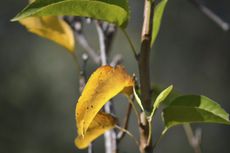
Yellow Pear Leaves: What To Do When A Pear Tree Has Yellow Leaves
When you notice your pear tree leaves turning yellow, panic sets in. What could be causing this? The truth is, a lot of things. Click here to learn more about what brings about yellowing leaves on flowering pear and how to treat it.
By Liz Baessler
-
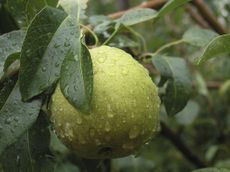
Pear Tree Irrigation: Tips On Watering A Pear Tree
Pear trees are a great addition to a yard or landscape. Pears are delicate, however, and too much or too little watering can lead to yellowing or dropped leaves and subpar fruit. Learn more about pear tree watering and how often to water pears here.
By Liz Baessler
-
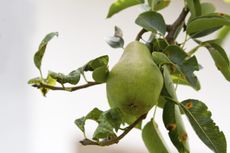
Pear Tree Leaf Curl: Learn About Leaf Curl On Pear Trees
trees are sometimes susceptible to issues that cause leaf curl. This article includes information on possible reasons for curling pear tree leaves, and tips for pear tree leaf curl treatment. Click here to learn more.
By Mary H. Dyer
-
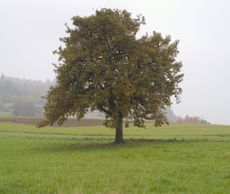
Pear Tree Lifespan Info: How Long Do Pear Trees Live
The pear tree lifespan is a tricky subject, because it can depend upon so many things, from variety to disease to geography. That being said, plenty of estimates can be made and the information in this article will help.
By Liz Baessler
-
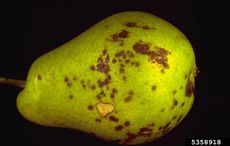
Pear Tree Diseases And Treatment: Diagnosing And Treating Disease In Pears
Home-grown pears are really a treasure. Unfortunately, pear trees are susceptible to quite a few easily spread diseases that can wipe them right out if left untreated. Learn more about pear tree diseases and treatment in this article.
By Liz Baessler
-
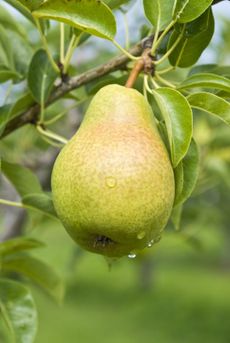
Pear Tree Fertilizer: Tips On Fertilizing A Pear Tree
When conditions are optimal, pear trees are generally able to uptake all the nutrients they need through their root systems. Since life isn't always perfect, however, knowing how and when to fertilize pears is important. This article will help.
By Amy Grant
-
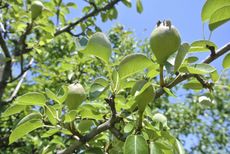
Tips On Thinning Pears: Learn How And When To Thin Pears
Thinning is a beneficial practice whether we're talking about lettuce starts or tree fruits like pear. Timing and the number of fruits to cull are important aspects to know. This article will help with thinning out pears.
By Bonnie L. Grant
